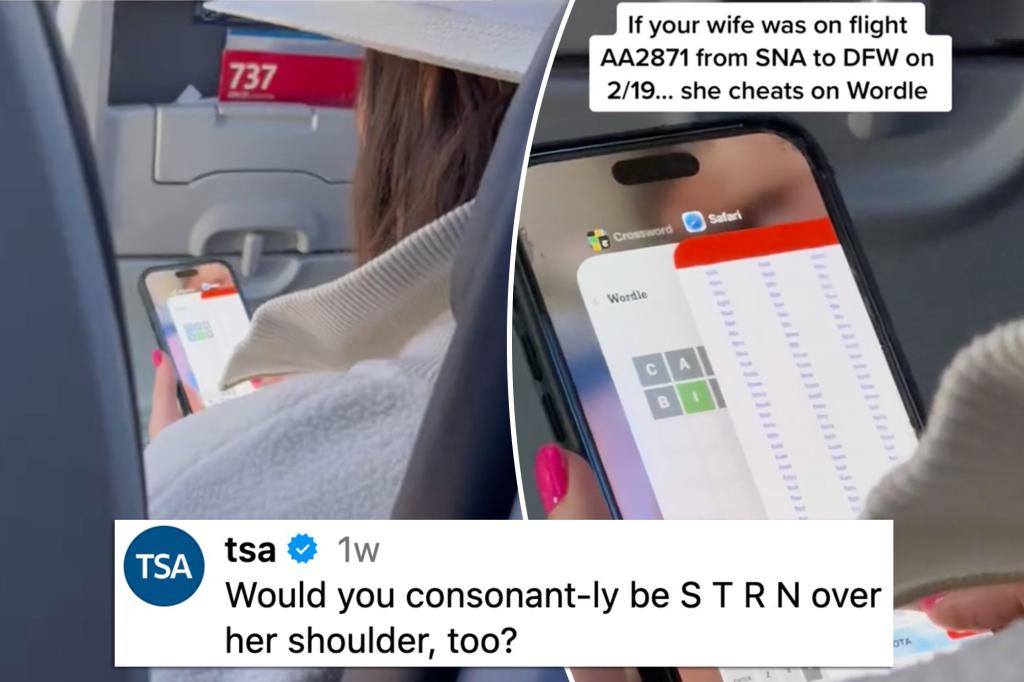An American Airlines passenger was caught seeking vocabulary help for the New York Times game Wordle on a flight from Santa Ana, California, to Dallas, Texas. The passenger was filmed toggling between the Times app and a website of recommended words, leading to accusations of cheating. The video went viral on TikTok and was later shared by the Transportation Security Administration on Instagram, sparking a heated debate online.
The uploader of the clip, Alex Yanchura, expressed shock at the passenger’s actions as a serious Wordle player. The TSA shared the video with a punny caption, igniting further discussion about cheating in the game. Many Wordle players condemned the passenger’s behavior, questioning the reasoning behind cheating in a game meant to exercise the brain. Some defended the passenger, arguing that checking to see if a word has already been played is not cheating and that it is difficult to remember hundreds of past solutions.
Critics of the clip focused not only on the passenger’s behavior but also on Yanchura for filming the passenger’s phone screen without consent. Many argued that it was an invasion of privacy and highlighted the issue of secretly filming or taking pictures of strangers in public spaces. The debate around cheating in Wordle intensified, with a study showing a significant increase in online answer searches since the Times acquired the game. In a separate incident, social media users claimed they were unable to win a game due to a high number of challenging vocabulary variations.
The incident sparked broader conversations about privacy, consent, and ethical behavior in public spaces. Many online users expressed concern over the growing trend of recording and sharing videos of strangers without their knowledge. Wordle players were divided on whether checking previous answers constituted cheating or was a legitimate strategy to improve gameplay. The game’s popularity and the Times’ acquisitions led to increased scrutiny over its difficulty level and accusations of deliberately creating obscure word choices to challenge players.
Despite the controversy, the incident highlighted the blurred lines between harmless fun and more serious ethical considerations in online gaming and social media interactions. The debate surrounding cheating in Wordle brought attention to broader issues of privacy, consent, and digital behavior in a rapidly evolving digital landscape. While some defended the passenger’s actions as a valid strategy, others criticized the behavior as unethical and unsportsmanlike. Ultimately, the incident sparked a wider conversation about the intersection of technology, privacy, and ethics in modern society.


